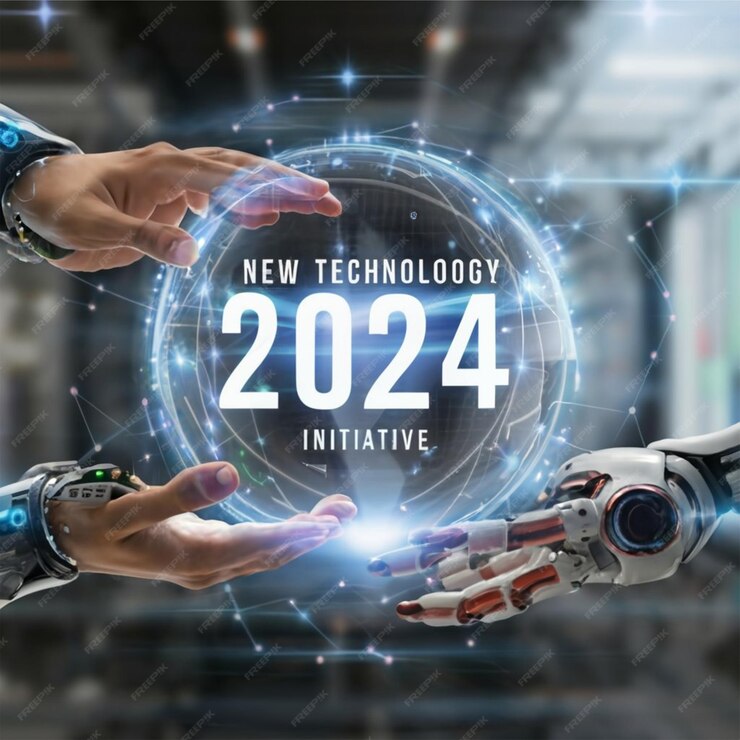From revolutionizing industries to enhancing everyday experiences, AI has become an integral part of our lives, shaping the way we work, communicate, and interact with the world around us. In this blog post, we embark on a journey into the realm of AI, exploring its origins, applications, and the ethical considerations that accompany its rapid evolution.
Table of Content
- Introduction
- The Genesis of AI
- Applications Across Industries
- Ethical Considerations and Challanges
- The Future of Ai: Oppurtunities and Responsibilities
- Conclusion
1: The Genesis of AI

Turing’s vision of a machine that could exhibit intelligent behavior sparked a revolution in computer science, leading to the development of early AI algorithms and systems.
In the decades that followed, researchers and scientists pushed the boundaries of AI, exploring various approaches such as expert systems, neural networks, and machine learning. Breakthroughs in computational power, coupled with advancements in algorithms and data availability, fueled the rapid progress of AI, paving the way for its integration into diverse domains.
2: Applications Across Industries

Today, AI permeates virtually every aspect of our lives, driving innovation and transformation across industries. In healthcare, AI-powered diagnostic systems analyze medical images with unparalleled accuracy, aiding doctors in early detection and treatment planning. Virtual assistants powered by AI have become ubiquitous, simplifying tasks and enhancing productivity in homes and workplaces.
Moreover, AI is revolutionizing transportation with autonomous vehicles, optimizing routes, and improving safety on roads. In finance, AI algorithms analyze vast volumes of data to detect fraud, manage risk, and optimize investment portfolios. The entertainment industry leverages AI to personalize content recommendations, predict audience preferences, and even create lifelike virtual characters.
The potential of AI seems limitless, with ongoing research and development pushing the boundaries of what’s possible. From robotics and cybersecurity to agriculture and education, AI continues to drive innovation and shape the future of humanity.
3: Ethical Considerations and Challenges

However, amid the excitement surrounding AI’s capabilities, significant ethical considerations and challenges emerge. The rise of AI raises concerns about job displacement, as automation threatens traditional employment sectors. Addressing this issue requires a concerted effort to retrain the workforce and create new opportunities in emerging fields.
Moreover, the black box nature of some AI algorithms raises questions about transparency and accountability. As AI systems make decisions that impact individuals and society at large, ensuring fairness and equity in algorithmic outcomes becomes imperative. Bias in AI systems, whether due to flawed data or algorithmic design, can perpetuate existing societal inequalities and exacerbate discrimination.
Privacy and data security also loom large as AI systems rely on vast amounts of personal data to function effectively. Safeguarding user privacy and preventing unauthorized access to sensitive information necessitate robust regulations and ethical guidelines.
4: The Future of AI: Opportunities and Responsibilities

Looking ahead, the future of AI holds immense promise, yet it also demands a thoughtful and responsible approach to its development and deployment. Collaboration between technologists, policymakers, ethicists, and society at large is essential to harness the potential of AI for the greater good while mitigating its risks.
Investments in AI research and education will be crucial to nurture talent and drive innovation in this rapidly evolving field. Embracing interdisciplinary approaches that combine expertise from diverse domains will enable us to tackle complex challenges and unlock new opportunities for AI-driven solutions.
Furthermore, fostering a culture of transparency, accountability, and inclusivity will be paramount in shaping an AI-powered future that benefits everyone. Ethical AI principles must guide the design, implementation, and governance of AI systems to ensure that they align with human values and respect fundamental rights.
Conclusion

In conclusion, Artificial Intelligence stands at the forefront of technological innovation, reshaping our world in profound ways. Its transformative potential is matched only by the ethical considerations and responsibilities that accompany its advancement. By embracing the opportunities that AI presents while addressing its challenges with diligence and foresight, we can chart a course towards a future where AI enhances human capabilities, fosters prosperity, and enriches lives worldwide.
As we continue to navigate the complexities of the AI landscape, let us remain steadfast in our commitment to harnessing this powerful tool for the betterment of humanity. Together, we can unlock the full potential of Artificial Intelligence and build a brighter, more inclusive future for generations to come.


